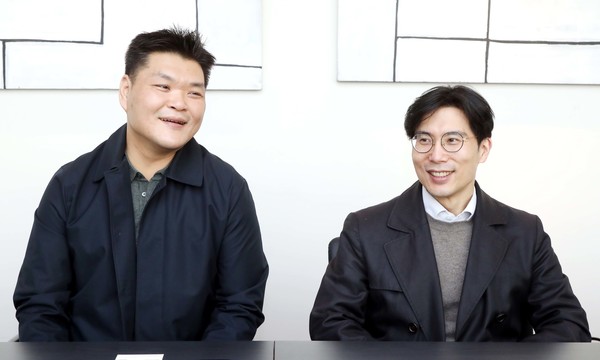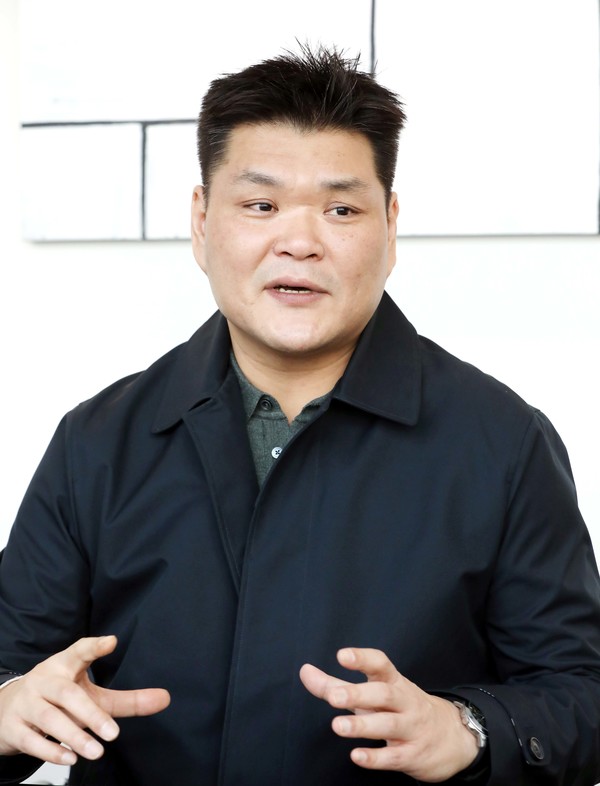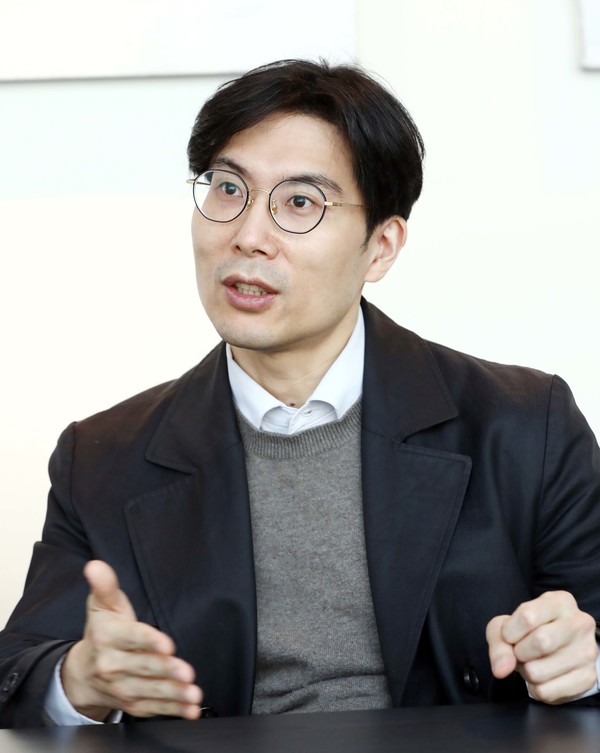2 experts stress need for more efficient cancer care environment in a KBR interview
The development of medical technology has increased cancer survival rate, but patients and their families still worry about uncertain futures and can seldom escape from frustration.
To confirm such a reality, one has only to look at the survey conducted on 495 can patients by All Can Korea in October 2020 to check overall cancer management's inefficiency.
According to the opinion poll, eight in 10 people feel mental and psychological shock when diagnosed with cancer. Such a phenomenon was pronounced among people in their 40s who conduct social and economic activities more briskly than in other age groups.
It is against this backdrop that All.Can Korea emphasizes the need for psychological support for cancer patients, pointing out that the mental pain experienced by patients can persist throughout treatment and even after their cure. It also calls for the regional communities to introduce psychological counseling services according to patients’ mental states.
All.Can Korea is the Korean chapter of All.Can International, a nongovernmental organization headquartered in Brussels, aims to improve inefficiency in a cancer-treating environment with 19 branches in 19 countries. Korea joined the effort in 2020 for the first time among Asian nations.
All.Can Korea’s operating committee comprises patient organizations, health and welfare experts, legal experts, industrialists, medical professionals, and healthcare experts. Choi Seong-cheol, the representative of Citizens’ Solidarity for Cancer, heads the NGO.
Korea Biomedical Review met with Choi and one of the operating committee members, Professor Park In-keun of the Oncology Department at Asan Medical Center, to hear their objective of “improving efficiency in cancer treatment, All.Can Korea’s activities and the role of each member participating in the NGO.

KBR: How have you come to join All.Can Korea?
Choi: Various patient organizations, including Citizens’ Solidarity for Cancer, the Korea GIST (gastrointestinal stromal tumor) Patients’ Association, the Korea Leukemia Patients’ Association, and the Korea Kidney Cancer Patients’ Association, are taking part in All.Can Korea. I had come to represent it because there were opinions patient organizations should lead it. I was cautious at first but accepted the offer, thinking, “let’s do it together.”
Park: Doctors conduct treatment trapped within the system. However, nothing changes even if we talk about something in consulting rooms. So, thinking there was nothing I could change if I didn’t come forth, I joined this organization introduced by a representative of the Korea Kidney Cancer Patients’ Association.
KBR: What are the objectives of All.Can International and All.Can Korea?

Choi: All.Can International is a nonprofit patient organization. Various people of interest related to cancer collaborate to check inefficiency in overall cancer management, decide on priorities to improve it and aim to offer solutions, mostly by releasing white papers or reports. So far, 19 national branches have been set up. All.Can Korea aims to apply various overseas to Korean patients evenly and in keeping with the objectives of All.Can International.
KBR: It is good to hear you would improve inefficiency and increase efficiency in cancer care. However, there are parts where we don’t understand what you’re going to do.
Choi: When we talk about “efficiency” in cancer cure, most people only think about economic efficiency. However, it has many meanings in the efficiency of procedural and diagnostic processes. All.Can does not focus only on efficiency. Instead, you might think of it as improving the overall cancer cure process. There are quite a few inefficient parts, from diagnosis to patient acknowledgment, and in every stage of involvement by healthcare or welfare. We will present ways to improve them not in a lump sum but one by one.
KBR: As a patient group representative, how do you evaluate the efficiency of cancer care in Korea?
Choi: Regarding cancer treatment skills, Korea belongs to the world’s top class. The nation may not be the best in introducing new techniques, but it is trying hard to narrow the gap little by little.
However, in terms of cancer systems and policies, there is much to be desired from the standpoint of patient organizations. For example, nursing hospitals are the only places cancer patients can go until death. Yet, no hospitals accept them if they want to be hospitalized to control pain. Also, only 30 percent of applicants can go to hospice hospitals. Eventually, they have to go to nursing hospitals, but these are not places where they focus on caring for terminal patients. What would have happened had the authorities reflected patients’ opinions more in the policy-making process?
Another problem is that most of the budget is focused on expensive anticancer drugs. I wonder if it's right to focus on treatment, and I don't think it's effective.
KBR: Dr. Park, how would you assess the efficiency of cancer treatment as a physician who treats cancer?

Park: Doctors also feel that patients are psychologically challenged when treating them. In particular, rehabilitation is often necessary after surgery, but such services are unavailable even in large hospitals. It is also impossible to move naturally from active to palliative treatment. So I don't think our system is not efficient from these aspects.
Mr. Choi said Korea excessively focuses on expensive cancer drugs, but this country is rather late in approving drugs or providing insurance benefits. As a result, opinions of patients who badly need those drugs are not delivered. Besides, once the government makes a guideline in Korea, none can violate or change it. If you don’t follow it, the authorities slash reimbursement right away.
KBR: It’s been two years since All.Can Korea was established. What projects have you carried out?
Choi: We conducted an opinion poll on 495 cancer patients in 2020 to check the inefficiency in overall cancer management as felt by patients. We also held a policy debate session in 2021 with the National Assembly’s research group for death with dignity to provide psychological services for cancer patients. This year, we are developing a program for “inter-patient support to provide psychological support for cancer patients with Professor Yu Eun-seung of the Department of Psychological Counseling at the Cyber University of Korea.
Psychological support for cancer patients is not an issue only in Korea. It is commonly mentioned in most countries. However, in the case of Korea, access is too limited. Each hospital provides counseling, and that’s all. So, we thought about ways to make it easy for patients to access when they're having a hard time psychologically without feeling financial burdens. The solution was to utilize public health centers nationwide. The National Cancer Center also uses local cancer centers, and we want to expand the program to public health centers. But, in the case of cancer centers, some regions don't have them. And much of these psychological supports should be community-based, so we judged it would be effective to use the public health center network.
KBR: That seems to be a good and necessary idea. However, we are not sure if the government will accept it.
Choi: Exactly, that explains why we should run the program focusing on public health centers. There are already public health centers that operate at-home cancer care programs. Cancer patient organizations have management programs, but their efficiency has yet to be proven. Nor can the Ministry of Health and Welfare do this job. So, we decided to make a program with proven efficacy. So, national support for domestic cancer care treatment has been focused on removing “tumors,” falling short of managing patients’ mental and psychological difficulties. Now is the time to care about patients’ quality of life. Communities need to provide psychological counseling support according to patients’ mental and psychological states for more effective and efficient psychological management of patients.
KBR: Lastly, what are your plans or resolutions for future activities?
Choi: It was the first time we moved beyond activities as patient organizations and formed governance with other vocational areas and people of different interests. All.Can Korea’s activities are more significant in that regard. No one can live without getting sick. Anyone can become a patient. We will try to find things to which healthy people can also feel empathy instead of limiting ourselves to cancer patients.
Park: I had come to join this organization, thinking I could make my voice heard to improve systems that cannot be solved as an individual doctor. I think there will be good results if we do it step by step because “we can never be full at the first bite,” as an old saying goes. As many stakeholders are participating in All.Can Korea, I will try to present a balanced opinion as a medical professional in Korea.

